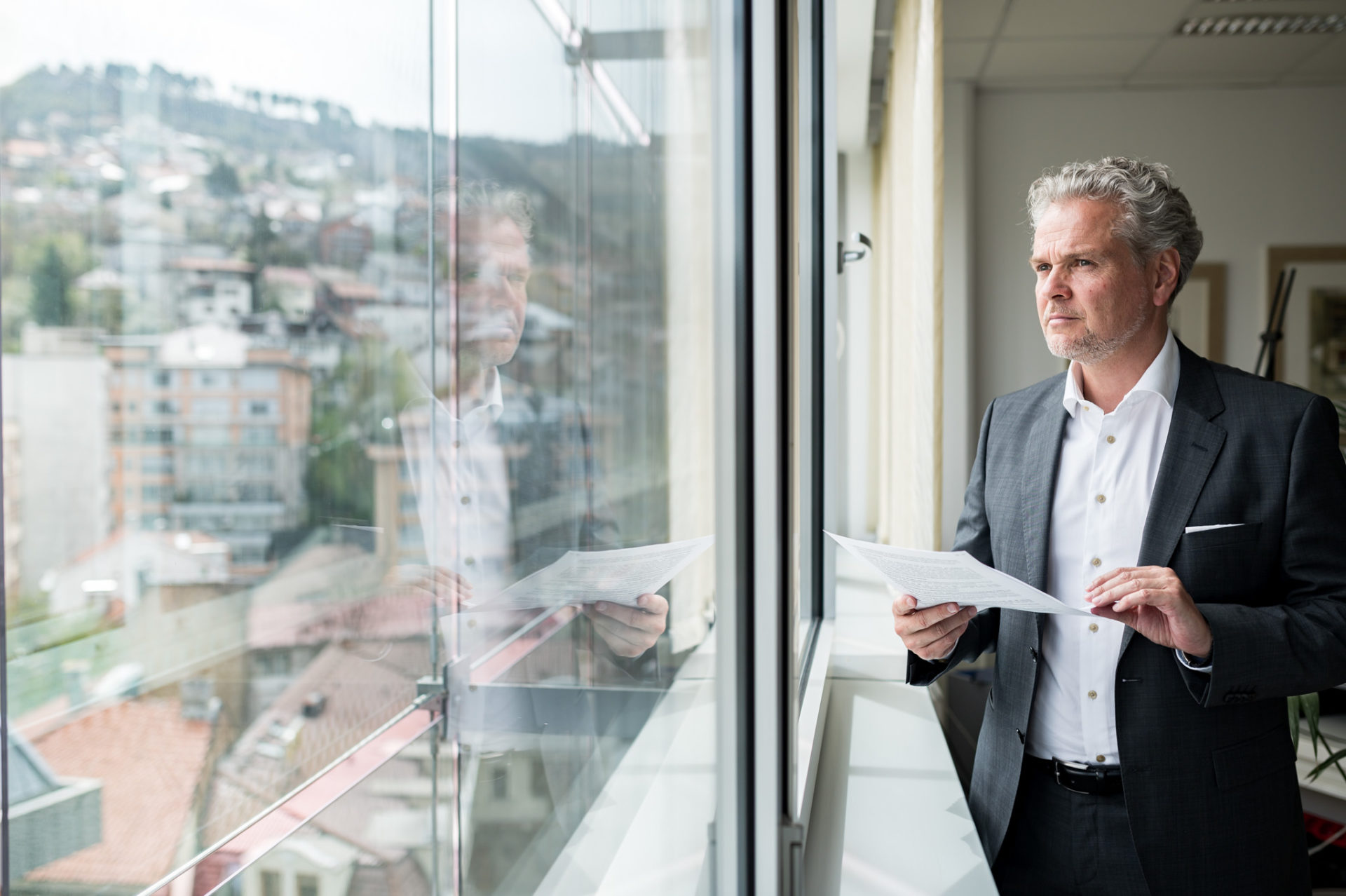
In January this year, Balkan Diskurs sat down with Ambassador Johann Sattler, Head of the Delegation of the European Union to Bosnia and Herzegovina and the European Union Special Representative in Bosnia and Herzegovina.
During your mandate as Head of the Delegation of the European Union to BiH and Special Representative of the European Union, BiH received candidate status for membership in the European Union. How challenging was this journey for your Delegation and what were the biggest problems, but also the successes on this journey? What are the first next steps for BiH regarding EU membership and your expectations for future reforms in the country?
Candidate status was a historic moment for Bosnia and Herzegovina. It should never be forgotten that the European Union is first of all a peace project, founded with the objective to integrate the societies and economies of Europe so closely that war is not only unthinkable, but materially impossible. The EU path of Bosnia and Herzegovina has a special significance, and every milestone that this country reaches is cause for celebration.
In December, Bosnia and Herzegovina also received a promise from the European Council – i.e. the heads of state and government of EU member states – that accession negotiations will be opened once the necessary level of compliance with the membership criteria is reached. On 21-22 March the European Council will meet again and it will be absolutely crucial for Bosnia and Herzegovina to make the necessary progress on key reforms that will persuade the EU member states unanimously to open accession negotiations.
The BiH authorities know which reforms are needed. Legislation to strengthen the rule of law is crucial, including laws that will strengthen the fight against corruption and organised crime. It would also help Bosnia and Herzegovina’s case for the EU to open accession negotiations if steps are taken to strengthen the integrity of elections. The protection of fundamental values is a key element of the EU accession process and to this end, we are concerned with the decision of the Republika Srpska leadership to criminalise defamation and draft legislation that places limitations on the freedom of civil society. Threats to the constitutional order from the Republika Srpska leadership are also unacceptable and run counter to BiH’s EU path.
In terms of challenges on the path to the EU, one of the biggest obstacles is the inability of politicians to seek win-win solutions that benefit all. There is a culture where unfortunately compromise is too often seen as something humiliating. Instead of seeking a solution where everyone wins, but also everyone has to make small sacrifices, political leaders too often seek complete victory. In doing so, everyone loses. Compromise and dialogue are essential to the functioning of the European Union – it is the only way that 27 countries with different political cultures and traditions can emerge stronger together.
Nonetheless, at various times during my mandate, when there was political will, allegedly impossible agreements or reforms suddenly became possible. We need to see more of that spirit over the course of 2024.
A big problem in Bosnia and Herzegovina is still the departure of young people to other countries where they stay and continue their lives. What are the Delegation’s thoughts on this matter and does the candidate status have the possibility to change the perception of young people in Bosnia and Herzegovina?
For me, it is natural that young people should want to spend some time abroad. Exposure to other cultures and ways of seeing and doing things broadens the mind and encourages tolerance and wider perspectives. The problem – as you yourselves note – is that all too often the young people that leave Bosnia and Herzegovina do not return.
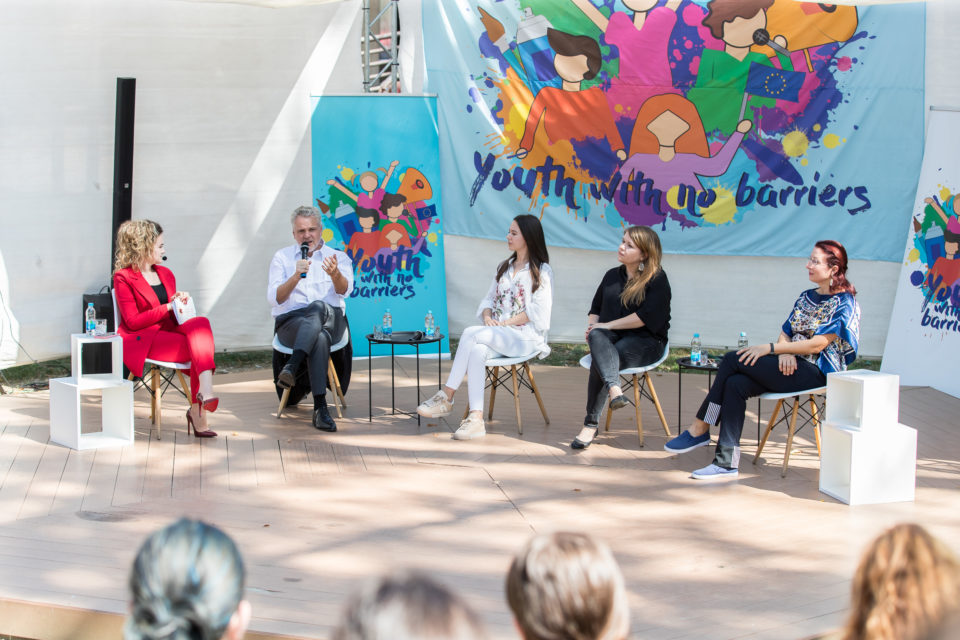
Every step that Bosnia and Herzegovina makes forward on the EU path brings with it benefits that should encourage more people to build their future here. Reforms to meet EU standards, for example in the rule of law, the fight against corruption, human rights, democratisation, energy transition, the environment, digitalisation and public administration reform improve the quality of life for everyone that lives here.
I am glad the EU is also investing in young people in BiH. I have had the good fortune to meet talented young people such as entrepreneurs, civil society activists, artists and researchers, some of whom have also received EU support. These are young people that have a real commitment to this country and make me optimistic about the future.
As a last point, I would also say that not only are too many young people from BiH leaving, but not enough young people from abroad are taking advantage of the opportunities offered by living in Bosnia and Herzegovina. I would really encourage young people from around the world to spend time in Bosnia and Herzegovina, particularly so-called ‘digital nomads’ who can work from anywhere. Bosnia and Herzegovina is not only a country of stunning natural beauty, it has diverse cultures and traditions that young people from around the world can learn from.
The EU delegation in Bosnia and Herzegovina works closely with Bosnia and Herzegovina civil society. How do you see the development of civil society in BiH and how significant is it on the European path of our country?
Democracy is much more than voting. If all it takes to be a democracy is regular voting, then Russia, which goes to the polls in March this year, is a democracy, when it is clearly not.
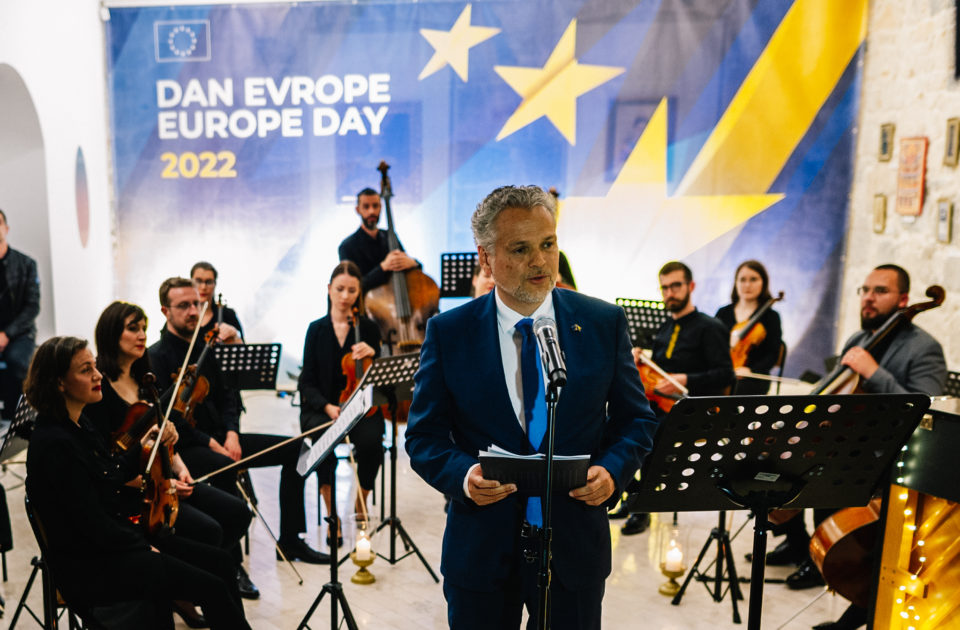
Democracy comprises a large number of fundamental values and principles, one of which is the right to freely associate with other like minded people. Indeed, I frequently encourage people – young people in particular – to find a cause they are passionate about and pursue it. This could be the environment, this could be disability rights, it could be inter-faith dialogue, or animal welfare. It could be anything.
I would say that Bosnia and Herzegovina has an impressive and determined civil society sector, which I am also glad that the EU has been able to provide support to. Civil society is crucial for the EU path and strengthening democracy also involves strengthening avenues for organised activism to change Bosnia and Herzegovina for the better.
Threats to limit the freedom of civil society, for example the draft legislation on ‘foreign agents’ in Republika Srpska is unacceptable. It should also be said that while the challenges to civil society are most acute in Republika Srpska, there are also threats to the functioning of civil society in the Federation as well. We will continue to stand by both the principle that civil society is essential, as well as provide concrete assistance to organisations, including to meet threats and challenges.
Considering the significant contributions of the international community to the post-conflict recovery and strengthening of social cohesion in BiH, do you think that enough has been achieved in this field and what are the next plans of the Delegation in this field?
A lack of social cohesion is clearly one of the things that is holding Bosnia and Herzegovina back from achieving its considerable potential. Nonetheless, without at all downplaying the challenges as regards social cohesion in this country, it is also important to remember that there are numerous individuals and organisations who are committed to building trust between communities. These are the actors that need to be strengthened.
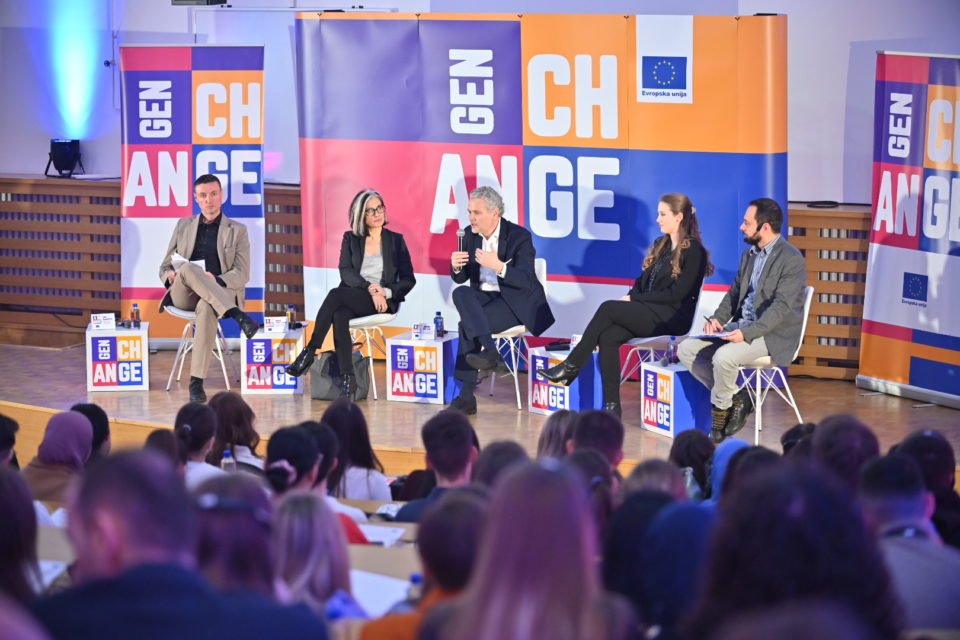
Indeed, strengthening positive actors has been a central element of the ‘Mozemo bolje’ project, which the EU is funding and which is being implemented together with the UN, Council of Europe and OSCE. This project is investing in communities which are demonstrating leadership in building social cohesion and encouraging important dialogue.
‘Mozemo bolje’ is one of many EU funded projects that encourage social cohesion. Our new Europe House in the heart of Sarajevo, as well as the network of EU Info Points across BiH as well as countless projects targeted at young people in particular have encouraged dialogue between communities as a key objective. Promoting an environment conducive to reconciliation is one of the 14 key priorities, and it will continue to be central to our work.
It should also be noted that the EU is unequivocally committed to supporting a safe and secure environment in BiH. As well as the presence of EUFOR Althea, the EU has also provided over €20 million in the past two years to the Armed Forces of Bosnia and Herzegovina.
What is it like to live in Bosnia and Herzegovina and among BiH’s citizens? What impressed you the most when you arrived in our country, and what do you value most in Bosnian and Herzegovinian society today?
Bosnia and Herzegovina has been a very important part of my life for many years, since I started learning the language at university, through my work in Sarajevo in the 90s for the European Community Monitoring Mission and of course as Head of the EU Delegation and EU Special Representative for over four years. I consider this country now to be a second home.
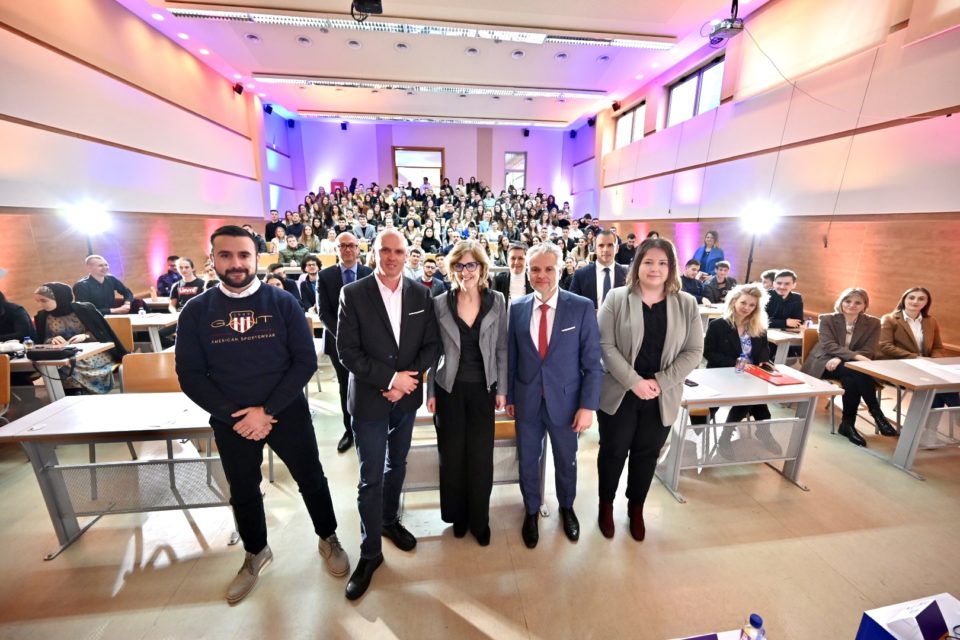
I love the fact that no matter how long I live here, there are always new things I am learning every day. The language is expressive, rich and full of humour, with subtleties that continually throw up new surprises. The country has diverse landscapes that provide a source of inspiration and contemplation, as well as valuable places to recharge batteries and return to work re-energised. And of course this heart shaped country is one of big hearted people.
The one thing I really value here is people’s dogged persistence. ‘Inat’ is a national characteristic that also has its negative sides, but it is also clear that when people in Bosnia and Herzegovina put their minds to something, they can achieve anything.
Is sustainable peace possible in Bosnia and Herzegovina?
Without a shadow of a doubt. I wouldn’t be doing the job I am doing otherwise. The history of the European Union is one of bitter enemies becoming firm friends. France and Germany fought three incredibly bloody and destructive wars in the eight decades between the Franco-Prussian War of 1870, and the end of World War II in 1945. Now, France and Germany are firm allies. There is no reason why this cannot also be true for the nations of the Western Balkans either. To this end, I congratulate the work being done by inspirational peace builders in BiH, such as those working in the PCRC. You can count on us to continue supporting peacebuilding efforts.
What is your message for young people in BiH, especially regarding the candidate status of our country?
My message to young people in BiH is to never give up. Yes, Bosnia and Herzegovina is a complex country with many challenges, and it is completely understandable that many decide to give in to indifference or despair. But that is making the work of the enemies of democracy easier. There is a reason that autocratic regimes around the world are pumping resources into disinformation campaigns that encourage apathy. A democracy requires active, engaged citizens. A dictatorship demands passivity. At the moment, there is a battle of values taking place in the world. Young people owe it to themselves and their happiness and wellbeing to fight for stability, prosperity, and a better future for all.
__________
This interview was conducted in January 2024, and the article was initially published within the second edition of MIR Magazine (May 2024). MIR, which means ‘peace’ in Bosnian is an annual publication and platform for young inventive people developed by the Post-Conflict Research Center and Balkan Diskurs.






